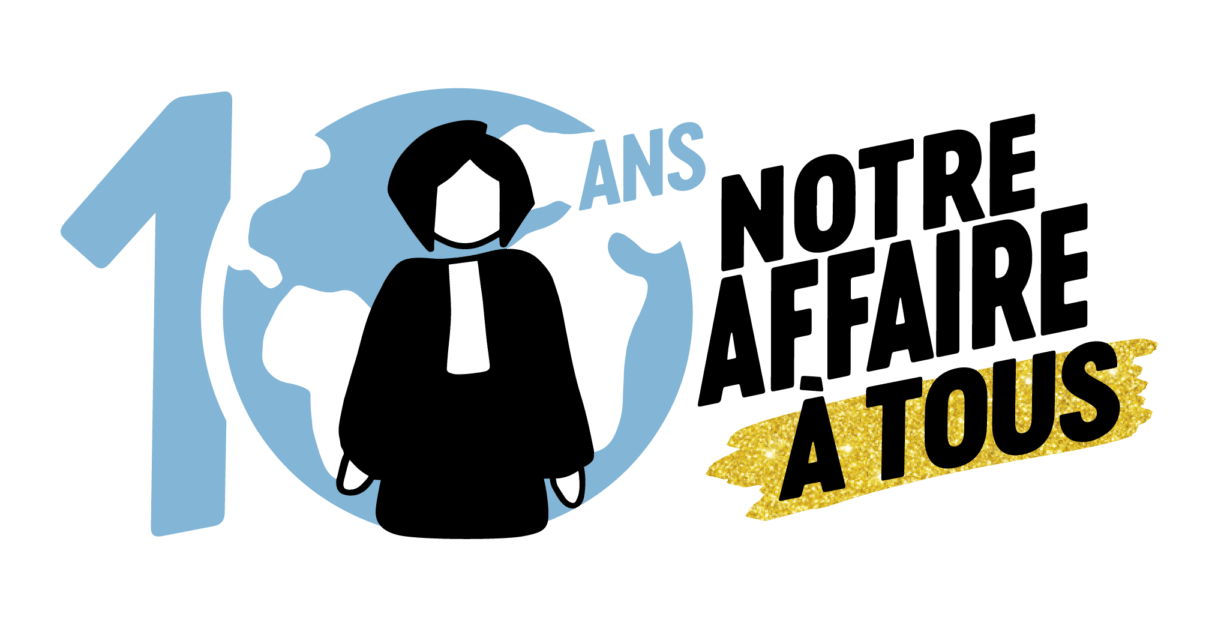1 MARCH 2023, PARIS – The interim relief judge of the Paris judicial court issued a ruling on Tuesday 28 February in a case based on the Duty of Vigilance Act (NB: « interim relief » proceedings are accelerated procedures allowing the judge to deal with urgent situations). The « emergency » judge dismissed the French and Ugandan associations’ claims concerning the risks and violations of human rights and the environment in Uganda and Tanzania linked to TotalEnergies’ « Tilenga » and « EACOP » oil projects.
Notre Affaire à Tous (NAAT) is not involved in this case but regrets this decision and affirms its support for the applicant associations and the affected communities in Uganda and Tanzania. The EACOP and Tilenga climate projects dangerously undermine the collective feasibility of achieving the Paris Agreement’s goal of limiting global warming to 1.5°C, introduce significant ecological risks to the local environment (in particular the Murchison Falls Natural Protected Area, where the oil drilling will take place), and cause expropriation of local populations, the conditions of which are widely contested by the petitioning organisations, including Friends of the Earth France.
The Paris court considered that the case was too complex to be dealt with under an emergency procedure. Consequently, it did not rule on the merits, conceding that the case « must be examined in depth […] exceeding the powers of the judge of summary proceedings« . It should be understood that this judgment is devoid of any res judicata in the main proceedings, i.e. the judge on the merits can always give a different judgment, which will prevail in which case.
Moreover, certain interpretations of the law on Duty of Vigilance seem at first sight challengeable. In particular, the court ruled the associations’ claims inadmissible for the following procedural reason: the grievances and claims formulated in the letter of formal notice (hereinafter « MED », this is a compulsory preliminary letter before taking legal action on the basis of the duty of care law) differ too much from those raised in the last written and oral pleadings. Friends of the Earth France and the other associations involved in the litigation contest this decision in their press release, explaining that « they have only clarified and consolidated their arguments » and refer to their MED for justification. Not having been able to see all the documents in the case, NAAT is nevertheless concerned about this interpretation, which, if confirmed, could hamper the fundamental requirements of this law, namely the ongoing obligations to identify and prevent risks of serious human rights and environmental abuses. Paul Mougeolle, in-house lawyer at NAAT specifies: “once litigation has been initiated, it seems absurd that the claims cannot be updated if the situation evolves and if the company still does not address the main allegations indicated in the MED. The opposite hypothesis would lead to a fundamental questioning of the role of the judge, who is responsible for controlling the application of the law.”
In any case, this judgment does not affect other cases relating to the duty of vigilance, in particular those relating to « climate vigilance » launched by NAAT. Climate litigation in France (Affaire du Siècle, Grande-Synthe, proceedings in which NAAT is a party) and abroad is increasingly leading to victories, both against States (The Netherlands, Germany, Ireland, Great Britain, Belgium, even in the USA to a certain extent in the Massachusetts v. EPA case) and against companies (Shell case in the Netherlands).
Beyond this favourable judicial context, the 2022 UN High-Level Expert Group report on net zero commitments sets out the measures that companies must implement in the area of climate change, drawing the consequences of the scientific reports produced by the IPCC over many years on the serious risks associated with fossil fuels. Brice Laniyan, advocacy and litigation officer for NAAT concludes: “We remain convinced that these elements reinforce the validity of our interpretation of the duty of vigilance in climate matters and that the summary judgment handed down on 28 February by the Court of First Instance in the Tilenga/EACOP case does not call into question our chances of success”.
Press contact
Notre Affaire à Tous: Brice Laniyan, Advocacy and litigation officer in charge of corporate climate accountability, brice.laniyan@notreaffaireatous.org.
